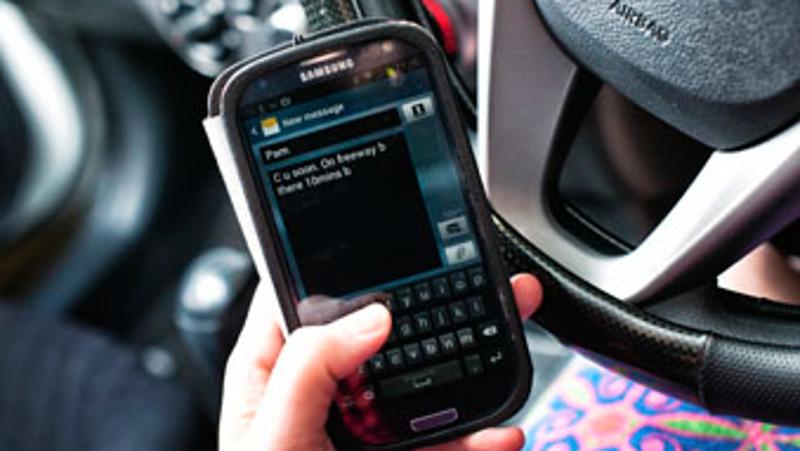
Young drivers dependent on their mobile phones think staying connected to their friends is more important than safe driving and obeying the road rules, a new QUT study has found.
Cassandra Gauld, from QUT's Centre for Accident Research & Road Safety - Queensland (CARRS-Q), said drivers aged 17-25 who had a higher mobile phone attachment were twice as likely to hide their texting when behind the wheel.
Ms Gauld is presenting the findings at the Australasian College of Road Safety Conference being held in Adelaide this week.
"Despite the dangers of attention being further diverted from the road when concealing their texting, twice the number of young drivers admitted to texting in a concealed manner than in an overt manner," she said.
"Fifty per cent of young drivers surveyed admitted to sending a concealed text message while driving at least one to two times a week, whereas 24 per cent admitted to doing it in an overt manner.
"Furthermore, 60 per cent said they had read a text message in a concealed manner while driving, whereas only 31 per cent had reported doing the same thing in an overt manner.
"This suggests that the more involved a driver is with their mobile phone the more likely they are to believe that staying connected with others is more important than the negative consequences of engaging in risky behaviours such as concealed texting while driving.
"The study showed drivers' perceived need for connectiveness may override their perceived risk of engaging in these illegal activities."
Ms Gauld said mobile phone use while driving was highly dangerous and studies had found it increased the risk of a crash four-fold.
She said her study also found that a young driver's "moral view" of texting behind the wheel, was a predictor of whether or not they would undertake the behaviour.
"Young drivers who believe texting while driving is an 'immoral behaviour' are less likely to send a text in a concealed or overt manner."
Ms Gauld said enforcing bans while driving may be difficult as drivers increasingly chose to conceal their texting to avoid getting caught.
She said this highlighted the need for other interventions such as advertising.
"Advertising strategies should be aimed at making young drivers reconsider the deliberate engaging in these very risky behaviours," she said.
"For concealed texting, advertising should challenge the perceived need to constantly be connected by highlighting the importance of getting to their destination safely, over texting an immediate reply."
Related stories
Get off Facebook and get behind the wheel of CARRS-Q research
CARRS-Q announces 2013 Queensland Road Safety Award winners
RBTs cut alcohol-related crash rates in some states
Media contacts:
Sandra Hutchinson, QUT media officer (Tue/Wed) 3138 9449 or media@qut.edu.au
Clare Murray, CARRS-Q marketing officer, 0409 813 276 or clare.murray@qut.edu.au




